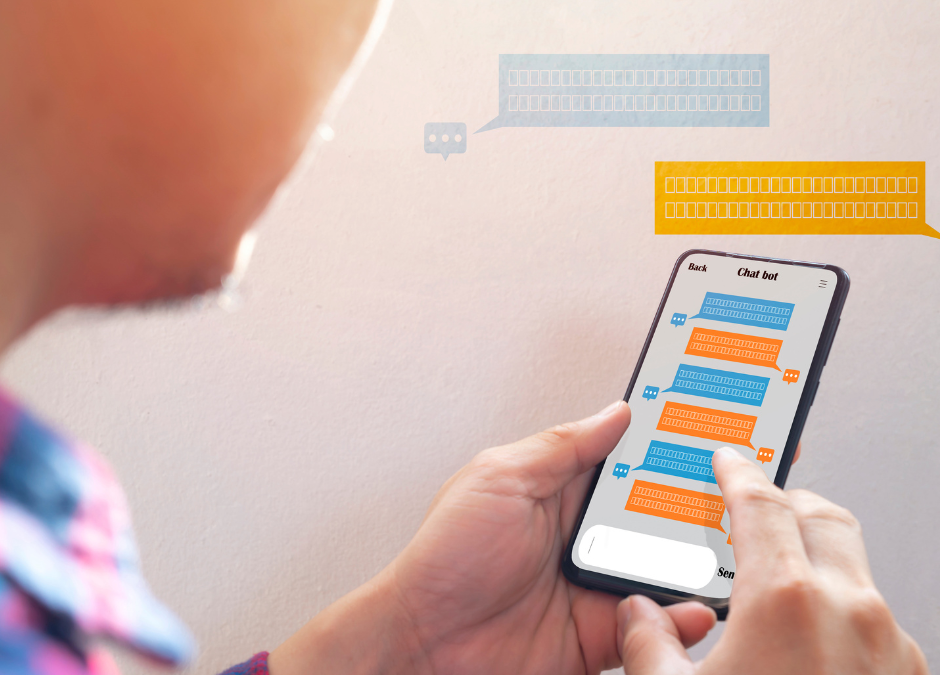For quite some time now, anyone with enough software development know-how could easily use OpenAI‘s GPT-4 as a template for building apps.
Good idea, right? OpenAI certainly took notice of this, as it decided to extend the offer of custom-GPTs to non-developers.
Subscribers to ChatGPT Plus can access the ChatGPT app store to accomplish this.
Below, we go into the app store OpenAI has been developing, along with an important offering from OpenAI, which is the opportunity to create your own GPT and put it on the app store–or use it for your own needs, such as running a business.
What Is the ChatGPT App Store, the GPT Store?
Yep, that is it’s name: the GPT Store.
This app store is like an open-air market where developers from all over the world and of varying skill level can hawk their wares.
Want a chatbot that can teach you how to make variations of peanut butter sandwiches, with the vicious tone of Gordon Ramsay? There could be a ChatGPT for that.
How about a chatbot that can think up various different walking routes during a trip to the zoo? There could be a ChatGPT for that, too. In fact, there may already be one.
The GPT Store brings countless chatbot possibilities to life.
The Larger Significance of a ChatGPT App Store
The GPT store makes specialized GPTs widely accessible to the (paying) public, since you do not need any development expertise to enjoy the benefits of custom chatbots.
Now, business owners can enjoy the benefits of customizing ChatGPT to their specific needs. And if they subscribe to ChatGPT Teams, they will be able to create their own custom GPTs for use within the company.
An Example to Illustrate the Use of Custom GPTs in the Business World
Let us suppose that there is a store that makes high-quality thumb rings for archers. Archers must protect their thumbs while slinging arrows, yet many wish to look good while doing it. This store is named Mr. Mandalorian’s Thumb Ring Emporium, or MMTRE for short.
This fictional store is based in the fictional town of Birdchirp in the fictional state of Dogbark. It has been steadily growing since its downtown debut in 2006.
Since then, it has steadily adapted to the seemingly nonstop waves resulting from the sea change of digital transformation, the latest being the integration of generative A.I. into numerous operations of a business.
Since people all over the world order thumb rings from MMTRE, for archery or fashion purposes, the shadowy conglomerate that owns this whimsical Birdchirp-based mom-and-pop after a pandemic-era buyout decree that custom GPTs must be put in place to nudge online shoppers into purchasing thumb rings, as well as handle the occasional customer complaint with the unflagging aplomb of a coldly cheery chatbot.
What this results in is a sitewide chatbot that is trained on MMTRE’s unique data sets, which include information as diverse as the best-selling thumb rings and the locations where purchased items were shipped.
This custom chatbot will go into detail about the variety of thumb rings available, answering relevant customer questions. The big idea here is to connect customers with information that may sway them toward a conversion.
Customizing Chatbots
As hinted above, the greatest appeal for business owners here is being able to tailor ChatGPT to their specifications.
We build these specifications using both your data and the directions you provide in building the chatbots.
You do not need to know how to code–or have any special knowledge of software development, really–to build a GPT.
Pretty cool, right?
However, you should be wary of giving any sensitive data to OpenAI for the sake of building your own chatbot. We go into just why this is below.
Are The GPT Store Chatbots Worth It?
Business owners should indeed be wary of using just any old chatbot that they find on the GPT Store, even if it seems perfect for their operations.
This is especially the case when it comes to forking over their business’ precious data.
Data privacy is one of the biggest issues that arise from digital transformation.
As of right now, OpenAI does not allow custom-GPT builders to have a look at specific back-and-forths between users and those custom GPTs.
However, OpenAI has stated that in the future it could offer builders “analytics” and “feedback mechanisms”. Those quoted words are fairly vague, as OpenAI provides no hints as to what content specifically will be available to builders. OpenAI vaguely reassures the reader by saying that these offerings will not compromise privacy.
However, the lack of specificity here is probably enough to make you weary of handing over just any kind of data to these GPTs. This goes for even the official version of ChatGPT–do not give it sensitive data that you would not want to be collected in a database that could get compromised by hackers.


Recent Comments